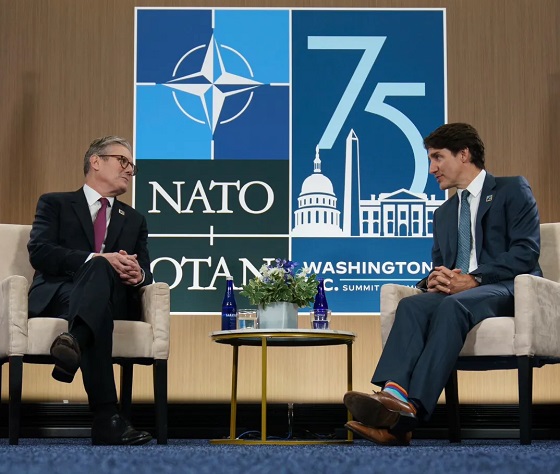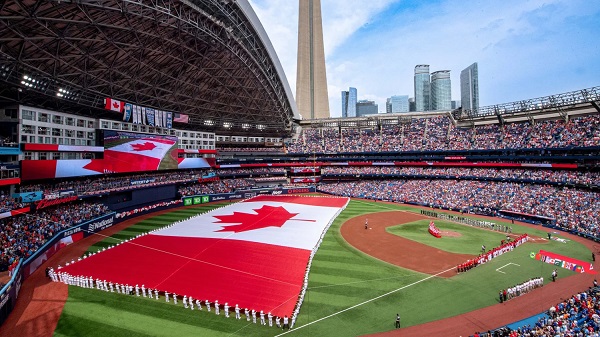2025 Federal Election
I don’t believe these polls!
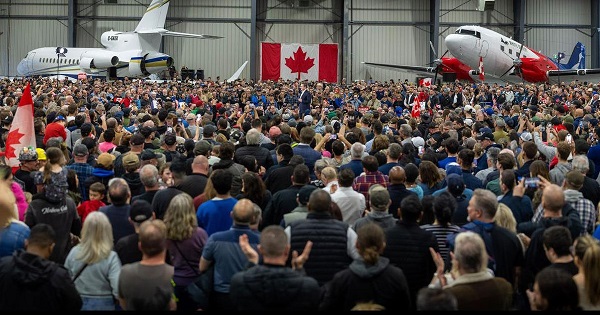
 Dan McTeague
Dan McTeague
Cards on the table, I’m skeptical of the current state of the polling in this election. My sense is that Mark Carney and the Liberals’ numbers are, at least in part, a byproduct of sympathetic pollsters over-sampling their key demographics, and those being trumpeted to high heaven by the publicly-funded media. That, coupled with voters’ justifiable annoyance at Donald Trump’s “51st State” cracks and tariff threats, has contributed to an illusion of enthusiasm, a sense that they are running away with this thing.
That said, one polling data point has struck me as being both real and important. A recent Abacus Data poll showed that, when you cut out all the distractions, Canadians’ biggest concern remains our inflated cost of living. And that is an issue which clearly favors Poilievre and the Conservatives.
That’s because the dire state of our economy can largely be laid at the feet of the Liberals, who’ve been running the show for the past decade. Yes, they’ve made a change at the top, but not much of one. On top of being a globe-trotting member of the “Green” Elite, and champion of environmentalist banking, Mark Carney was a Liberal advisor for years, a key part of the Trudeau “brain trust” — trust me, I use that term loosely — that cooked up a whole raft of economy smothering “Green” policies which have done nothing to reduce global carbon emissions, but have succeeded in lightening our wallets.
Under Trudeau, our annual GDP growth noticeably shifted from the 3% range towards the end of the Harper years to the 1% range more recently. Household debt-to-income ratios rose steadily in the same period, while real household spending per capita dropped 2-3% below 2019 levels by 2024, as costs and interest rates went up. Disposable income growth has been outpaced by inflation and taxes, and bankruptcy filings have risen 40% since just 2019.
Canadian food prices have exploded by 35-40%, with family spending up over 50% over the past decade. Consequently, food insecurity rose to 23% by 2023, from around 8% in 2015, and Food Banks Canada has reported a 78% surge in usage from 2019 to 2023.
Meanwhile, Canada’s national debt, which was just over $600 billion when Justin Trudeau was handed the federal credit card, has roughly doubled, reaching over $1.2 trillion by the time he left. And provincial debt has risen by about $1 trillion in the same period.
It’s a frightening financial snapshot. And many of these negatives can be attributed to the Liberals’ war on oil and gas, which remains — however much Carney might wish otherwise — the backbone of our national economy.
So much of the Liberals’ time and effort in government has been spent kneecapping the resource sector, and for purely ideological reasons. From Bill C-48, the Oil Tanker Moratorium Act of 2019, which significantly reduces our ability to sell oil and gas abroad, to Bill C-69, which added mountains of red tape for infrastructure projects, so much so that it was nicknamed the “No More Pipelines” Act.
You’ll remember that the Supreme Court ruled the “No More Pipelines” act largely unconstitutional two years ago. Even so, Carney recently said he has no intention of repealing it, prompting Poilievre to tweet out, “This Liberal law blocked BILLIONS of dollars of investment in oil & gas projects, pipelines, LNG plants, mines, and so much more,” with an excellent infographic attached, listing the various cancelled energy projects throughout Canada since the Liberals came to power.
And then of course, there’s the Consumer Carbon Tax, which started out at $20 per tonne of CO2 emitted in 2019, small enough that many Canadians barely noticed they were paying it, but increased every year until it hit $80 per tonne.
By that point it became so noticeable and unpopular that the Liberals felt they had no choice but to “cancel” it (“zero it out” is more accurate), before it could reach the $170 by 2030 which they’d planned. Still, it remains on the books, ready to be raised again, without a vote, if Carney so chooses.
Even if he doesn’t, Carney has doubled down on the Industrial Carbon Tax. While the Liberals claim this is an improvement because it isn’t paid by working Canadians, only by big evil “polluters.” Of course, they said something similar about the Consumer Tax, that by some financial wizardry, we regular folks would get back more than we paid in, which turned out to be total bunk.
Meanwhile, the Industrial Tax makes our lives more expensive in essentially the same way as the Consumer Tax. It raises the cost of doing business, of heating our homes, of filling up our car, of our grocery bills. It just does so by a less direct route, by taxing businesses instead of individuals, so that we pay when the price of goods and services goes up in response.
The Industrial Carbon Tax, much like Trudeau’s Clean Fuel Regulations, is ultimately a hidden tax, and that suits Carney just fine. He’d prefer that we not know who to blame as our cost of living skyrockets.
The Liberal Party’s economic record over since 2015 has been atrocious, and it will be no different under Mark Carney. He is complicit, and he continues to support policies which would make us poorer, like Bill S-243, the “Climate-Aligned Finance Act,” which Carney testified before the Senate in support of last year. That bill sought to make it nearly impossible for banks to invest in, or loan money to, oil and gas projects in Canada, and tried to force financial institutions to appoint board members ideologically opposed to fossil fuels.
Canada needs to change course, and soon. As things stand, it will be tough for even a good captain to navigate us through the rough seas the Liberals have steered us into over the past ten years. A few more, and with Mark Carney at the helm, might make that impossible.
Dan McTeague is President of Canadians for Affordable Energy.
Support Dan’s Work to Keep Canadian Energy Affordable!
Canadians for Affordable Energy is run by Dan McTeague, former MP and founder of Gas Wizard. We stand up and fight for more affordable energy.
2025 Federal Election
Protestor Behind ‘Longest Ballot’ Chaos targeting Poilievre pontificates to Commons Committee

Lawmakers confront organizer Tomas Szuchewycz for flooding ridings with placeholder candidates, targeting Pierre Poilievre’s seat, and wasting public resources.
Szuchewycz’s most notorious move came in Carleton — the riding of Conservative Leader Pierre Poilievre, where the ballot swelled to 91 names, stretching nearly a metre and forcing Elections Canada to redesign how it printed and handled the vote. The LBC framed the stunt as a protest against Canada’s first-past-the-post electoral system. But to most voters, it looked nothing like a principled reform campaign. What they saw was an effort aimed squarely at Poilievre, meant to bury his name among a wall of nobodies and turn the vote into a farce.
Elections Canada had to scramble to manage the chaos: printing extra‑long ballots, re‑training workers, and creating a last‑minute write‑in workaround in Battle River–Crowfoot to keep ballots usable. Seniors and disabled voters complained about the physical size and complexity of the ballot; poll workers faced new logistical headaches; public money was wasted.
At Tuesday’s hearing, Szuchewycz showed no contrition and offered no practical alternative to the system he had tried to upend. Instead, he accused MPs of having a “conflict of interest” in writing election law and demanded that power be handed to an undefined “permanent, non‑partisan body” — without explaining who would select it, how it would operate, or how it would be accountable to Canadians.
The LBC, whose actions led to metre-long ballots in ridings like Carleton (91 candidates) and Battle River–Crowfoot (86), claims to oppose Canada’s first-past-the-post system. But when asked how his proposed independent reform body would be formed, selected, or held accountable, Szuchewycz had no answers.
Conservative MP Michael Cooper led the charge, accusing Szuchewycz of overseeing a signature-harvesting scheme that involved electors signing blank nomination forms—potentially in violation of the Canada Elections Act. He tabled a January 2024 tweet and an August 2024 YouTube video showing organizers gathering signatures under the claim that candidate names would be “filled in later.”
Szuchewycz denied the accusation, claiming nomination papers had either candidate names or the phrase “all candidates” filled in. But when he tried to discredit Cooper’s evidence by calling it “AI-generated,” the committee chair issued a warning for casting doubt on the authenticity of a Member’s documents without basis. The comment was withdrawn under pressure.
Still, Cooper was unsatisfied, warning Szuchewycz that misleading Parliament could amount to contempt.
Other witnesses—experts and former elected officials—were equally critical of the LBC’s tactics. Dr. Lori Turnbull, a professor at Dalhousie University, called the stunt “undesirable” and a “waste of resources,” though she praised Elections Canada for adapting quickly by allowing a write-in workaround in Battle River–Crowfoot to avoid printing a literal wall of names.
Professor Peter Loewen of Cornell University added that the LBC’s ballot-stuffing “violates the spirit” of competitive democracy and burdens front-line elections staff with unnecessary logistical chaos. He warned that a third-party group acting like a political party without oversight was a loophole that needed closing.
Meanwhile, former Liberal MP Louis-Philippe Sauvé described the real-world toll of the stunt: longer lineups, stressed poll workers, and accessibility hurdles for elderly and visually impaired voters.
In stark contrast to these grounded critiques, Szuchewycz’s testimony revolved around vague accusations of “conflict of interest” by MPs and a call to remove Parliament from electoral reform altogether. No constitutional roadmap. No governance model. No practical enforcement mechanism.
At the end of the day, what Tomas Szuchewycz has done isn’t just a stunt, it’s an insult. He claims Canadians “know what he’s protesting,” but let’s be honest: most voters had no clue this was about electoral reform. What they saw was a campaign to flood ballots with nonsense names in key ridings, especially against the Leader of the Opposition, and create chaos for chaos’s sake.
The takeaway wasn’t a conversation about democracy. It was a spectacle, and one that mocked the very voters he pretends to represent. Lets be clear, This wasn’t activism, it was ego masquerading as principle. And it reeked of entitlement.
Tomas Szuchewycz is the embodiment of unchecked privilege: a man who hijacked our electoral process, wasted taxpayer dollars, and offered nothing in return but smug contempt for the very democracy that gave him the space to pull his stunt.
He claims Canadians understood his message. They didn’t. Most people saw a confusing mess, an attack on the Opposition Leader, and a joke made at the expense of voters, poll workers, and the electoral system itself.
So yes — reform is coming. And it can’t come soon enough.
Parliament must not just close the loopholes it should make sure that when someone deliberately sabotages the integrity of an election, they are held accountable, including being forced to repay the public for the cost of their chaos.
Because in a democracy, you have the right to protest.
But not the right to turn an election into a farce on the public’s dime.
Subscribe to The Opposition with Dan Knight
Invite your friends and earn rewards
2025 Federal Election
Post election report indicates Canadian elections are becoming harder to secure

Chief Electoral Officer Stéphane Perrault highlights strong participation and secure voting, but admits minority politics, rising costs, and administrative pressures are testing the system’s limits.
Monday in Ottawa, Stéphane Perrault, Canada’s Chief Electoral Officer, delivered a long press conference on April’s federal election. It was supposed to be a victory lap, record turnout, record early voting, a secure process. But if you listened closely, you heard something else: an admission that Canada’s election machinery is faltering, stretched thin by a system politicians refuse to fix.
Perrault touted the highest turnout in 30 years, 69 percent of eligible voters, nearly 20 million Canadians. Almost half of those ballots were cast before election day, a dramatic shift in how citizens take part in democracy.
“Twenty years ago, less than 7% voted early. This year, nearly half did,” Perrault told reporters. “Our system may have reached its limit.”
That’s the core problem. The system was built for one decisive day, not weeks of advance voting spread across campuses, long-term care homes, mail-in ballots, and local Elections Canada offices. It’s no longer a single event; it’s an extended process that stretches the capacity of staff, polling locations, and administration.
Perrault admitted bluntly that the 36-day writ period, the time between when an election is called and when the vote happens, may no longer be workable. “If we don’t have a fixed date election, the current time frame does not allow for the kind of service preparations that is required,” he said.
And this is where politics collides with logistics. Canada is once again under a minority government, which means an election can be triggered at almost any moment. A non-confidence vote in the House of Commons, where opposition parties withdraw support from the government, can bring down Parliament in an instant. That’s not a flaw in the system; it’s how parliamentary democracy works. But it leaves Elections Canada on permanent standby, forced to prepare for a snap election without knowing when the writ will drop.
The result? Sixty percent of voter information cards were mailed late this year because Elections Canada couldn’t finalize leases for polling stations on time. Imagine that, more than half the country got their voting information delayed because the system is clogged. And that’s when everything is supposedly working.
The April election cost an estimated $570 million, almost identical to 2021 in today’s dollars. But here’s the kicker: Elections Canada also spent $203 million just to stay ready during three years of minority Parliament. That’s not democracy on the cheap. That’s bureaucracy on retainer.
Perrault admitted as much: “We had a much longer readiness period. That’s the reality of minority governments.”
No Foreign Interference… But Plenty of ‘Misinformation’
Canada’s top election official wanted to make something perfectly clear: “There were no acts of foreign interference targeting the administration of the electoral process.” That’s the line. And it’s a good one… reassuring, simple, the kind of phrase meant to make headlines and calm nerves.
But listen closely to the wording. He didn’t say there was no interference at all. He said none of it targeted the administration of the vote. Which raises the obvious question: what interference did occur, and who was behind it?
Perrault admitted there was “more volume than ever” of misinformation circulating during the 2025 election. He listed the greatest hits: rumors that Elections Canada gives voters pencils so ballots can be erased, or claims that non-citizens were voting. These are hardly new — they’ve appeared in the U.S. and in Europe too. The difference, he said, is scale. In 2025, Canadians saw those narratives across more channels, more platforms, more communities than ever before.
This is where things get interesting. Because the way Perrault framed it wasn’t that a rogue actor or a foreign intelligence service was pushing disinformation. He was blunt: this was a domestic problem as much as anything else. In his words, “whether foreign or not,” manipulation of information poses the “single biggest risk to our democracy.”
Perrault insists the real danger isn’t foreign hackers or ballot-stuffing but Canadians themselves, ordinary people raising questions online. “Information manipulation, whether foreign or not, poses the single biggest risk to our democracy,” he said.
Well, maybe he should look in the mirror. If Canadians are skeptical of the system, maybe it’s because the people running it haven’t done enough to earn their trust. It took years for Ottawa to even acknowledge the obvious , that foreign actors were meddling in our politics long before this election. Endless commissions and closed-door reports later, we’re told to stop asking questions and accept that everything is secure.
Meanwhile, what gets fast-tracked? Not a comprehensive fix to protect our democracy, but a criminal investigation into a journalist. Keean Bexte, co-founder of JUNO News, is facing prosecution under Section 91(1) of the Canada Elections Act for his reporting on allegations against Liberal candidate Thomas Keeper. The maximum penalty? A $50,000 fine and up to five years in prison. His reporting, incidentally, was sourced, corroborated, and so credible that the Liberal Party quietly dropped Keeper from its candidate list.
If people doubt the system, it isn’t because they’re gullible or “misinformed.” It’s because the government has treated transparency as an afterthought and accountability as an inconvenience. And Perrault knows it. Canadians aren’t children to be scolded for asking questions, they’re citizens who expect straight answers.
But instead of fixing the cracks in the system, Ottawa points the finger at the public. Instead of rebuilding trust, they prosecute journalists.
You don’t restore faith in democracy by threatening reporters with five years in prison. You do it by showing, quickly and openly, that elections are beyond reproach. Until then, spare us the lectures about “misinformation.” Canadians can see exactly where the problem lies, and it isn’t with them.
The Takeaway
Of course, they’re patting themselves on the back. Record turnout, no servers hacked, the trains ran mostly on time. Fine. But what they don’t want to admit is that the system barely held together. It was propped up by 230,000 temporary workers, leases signed at the last minute, and hundreds of millions spent just to keep the lights on. That’s not stability. That’s triage.
And then there’s the lecturing tone. Perrault tells us the real threat isn’t incompetence in Ottawa, it’s you, Canadians “sharing misinformation.” Excuse me? Canadians asking questions about their elections aren’t a threat to democracy, they are democracy. If the government can’t handle people poking holes in its story, maybe the problem isn’t the questions, maybe it’s the answers.
So yes, on paper, the 2025 election looked like a triumph. But listen closely and you hear the sound of a system cracking under pressure, led by officials more interested in controlling the narrative than earning your trust. And when the people running your elections think the real danger is the voters themselves? That’s when you know the elastic isn’t just stretched. It’s about to snap.
Subscribe to The Opposition with Dan Knight .
For the full experience, upgrade your subscription.
-

 Alberta2 days ago
Alberta2 days agoFact, fiction, and the pipeline that’s paying Canada’s rent
-

 Alberta2 days ago
Alberta2 days agoAlberta Is Where Canadians Go When They Want To Build A Better Life
-
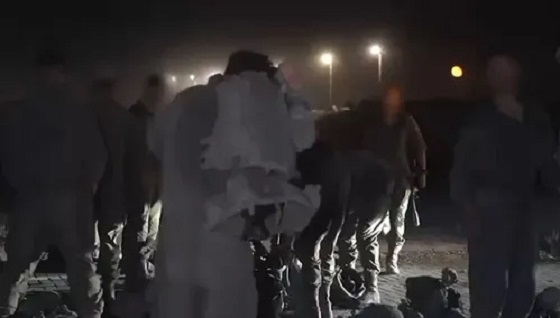
 International2 days ago
International2 days agoTrump-brokered Gaza peace agreement enters first phase
-

 Business1 day ago
Business1 day agoThe Grocery Greed Myth
-
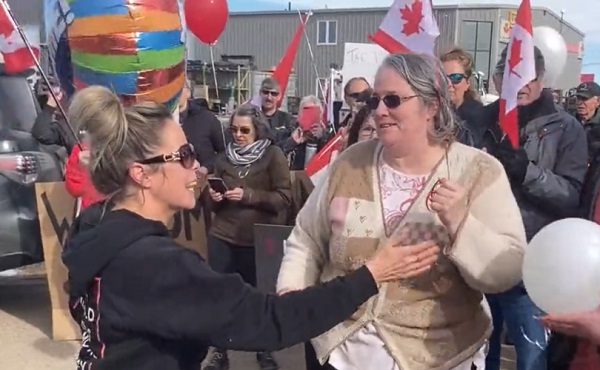
 COVID-191 day ago
COVID-191 day agoTamara Lich says she has no ‘remorse,’ no reason to apologize for leading Freedom Convoy
-
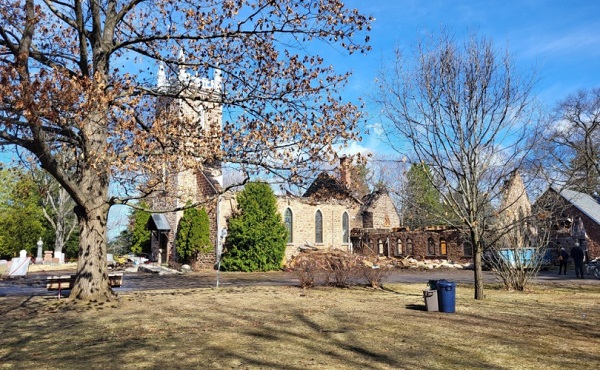
 Crime1 day ago
Crime1 day agoCanada’s safety minister says he has not met with any members of damaged or destroyed churches
-
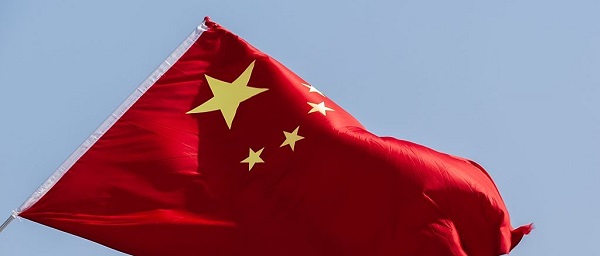
 Business1 day ago
Business1 day agoTrump Warns Beijing Of ‘Countermeasures’ As China Tightens Grip On Critical Resources
-

 International1 day ago
International1 day agoTrump gets an honourable mention: Nobel winner dedicates peace prize to Trump




